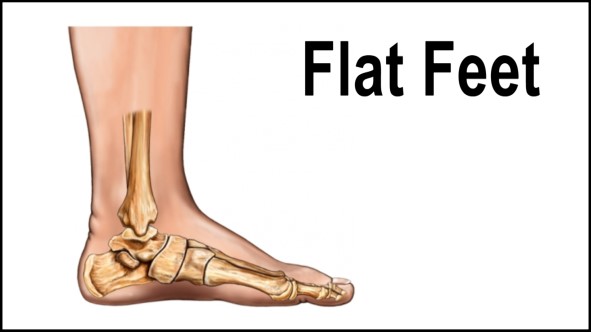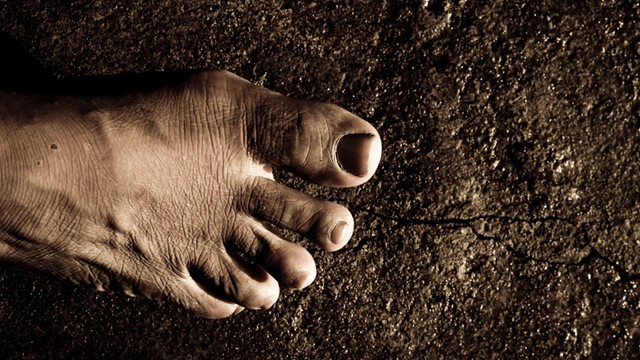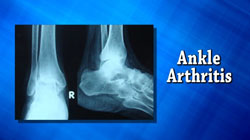Connect With Us
Items filtered by date: October 2013
Computer Based Modeling a Method to Identify Rheumatoid Arthritis
Researchers in the UK have been able to find a way to prematurely identify rheumatoid arthritis through computer-based modeling. Rheumatoid arthritis is a condition marked by a painful joint inflammation, and is inherited from genetics and nurtured by environmental factors such as smoking.
Through correlating information about the patient’s smoking history and genetic markers taken from blood tests, doctors at the University of Manchester and King’s College London have been able to identify the likelihood of developing the condition. According to Dr. Ian Scott of King’s College, “This is an important first step in trying to develop ways to prevent the onset of rheumatoid arthritis.”
If you are suffering from foot pain and think it might be caused by arthritis, you should seek the care of a podiatrist like as Dr. Howard Hyman of The Podiatry Center, P.C. Dr. Hyman can examine your foot pain and diagnose any potential conditions.
What Is Rheumatoid Arthritis?
Rheumatoid Arthritis is an autoimmune disorder in which the body’s own immune system attacks the membranes surrounding the joints. As a result, inflammation of the lining and the destruction of the joint’s cartilage and bone occur.
Symptoms
- Swelling & pain of the feet
- Stiffness in the feet
- Pain on the ball or sole of feet
- Joint shift or deformation can occur
Diagnosis
Quick diagnosis of RA in the feet is usually necessary for the podiatrist to treat the area effectively. Your doctor will ask you about your medical history, occupation, and lifestyle to determine what could have triggered the condition. The Rheumatoid Factor Test helps determine if someone is affected by the disease.
Treatment
Treating RA is usually a lifelong process that includes a variety of methods and therapy. Your doctor will prescribe special shoes that help with arch and heel support, and a physical therapist will assist with joint flexibility.
If you have any questions, please feel free to contact our office in Milburn NJ. We offer the newest diagnostic and treatment technologies for all your foot ankle injuries.
Read the full article on Rheumatoid Arthritis.
Flat Feet Can Act As a Gateway to Developing Other Foot Disorders
 In the journal PLoS One, researchers have found common wisdom when it comes to flat feet to be scientifically true. The Framingham Foot Study measured foot posture in 3,000 people, finding that people with flat feet were more at risk for overlying toes and conditions such as hammertoe and bunions.
In the journal PLoS One, researchers have found common wisdom when it comes to flat feet to be scientifically true. The Framingham Foot Study measured foot posture in 3,000 people, finding that people with flat feet were more at risk for overlying toes and conditions such as hammertoe and bunions.
On the contrary, people who possessed high arched feet were less likely to develop these feet conditions; since high arched feet tend to supinate as opposed to pronate. However, the study did not indicate any relationship between foot type and developing plantar fasciitis.
Having flat-feet can lead to complications down the road. If you think you have flat feet you should seek out the care of a podiatrist such as like Dr. Howard Hyman of The Podiatry Center, P.C. Dr. Hyman will diagnose any foot conditions you may have as well as provide you with a range of treatment options.
What are Flat Feet?
Conditions & Problems:
Having flat feet makes it difficult to run or walk because of the stress placed on the ankles.
Alignment – The general alignment of your legs can be disrupted, because the ankles move inward which can cause major discomfort.
Knees – if you have complications with your knees, flat feet can be a contributor to arthritis in that area.
Symptoms:
- Pain around the heel or arch area.
- Trouble standing on the tip toe.
- Swelling around the inside of the ankle.
- Flat look to one or both feet.
- Having your shoes feel uneven when worn.
If you have any questions, please feel free to contact our office in Milburn NJ. We offer the newest diagnostic and treatment technologies for all your foot ankle injuries.
Read more on Flat Feet.
Diabetes is correlated with Heel Fissures and Dry Skin According to Study
 A study by the National Foot Health Assessment and Institute of Preventive Foot Health shows that frequent dryness on the feet is experienced by twenty percent of Americans over 21. Additionally, split skin more prevalent in women than men by at least fifty percent.
A study by the National Foot Health Assessment and Institute of Preventive Foot Health shows that frequent dryness on the feet is experienced by twenty percent of Americans over 21. Additionally, split skin more prevalent in women than men by at least fifty percent.
These symptoms of cracked heels include; red or flaky patches, peeling and cracked skin, itchy skin, and bleeding from the cracks. Cracked heels are also called “heel fissures,” and are prevalent among people with diabetes. According to The Star, cracked heels may be difficult to treat if the skin around the outer part is already thickened or callused.
Having cracked heels can be bothersome and embarrassing but it doesn’t have to be. Seek the help of a podiatrist like Dr. Howard Hyman of The Podiatry Center, P.C. Dr. Hyman will examine your feet and provide you with the best treatments possible.
The Truth about Cracked Heels
Cracked Heels
Cracked heels are unappealing, and make it harder for you walk around in sandals. Not only may they look bad, but they can also tear stockings, socks, and wear out your shoes. There are several methods to help restore a cracked heel and prevent further damage.
How do you get them?
Dry skin is the number one culprit in creating cracked heels. Many athletes, walkers, joggers, and even swimmers suffer from cracked heels. Age and skin oil production play a role to getting cracked heels as well.
Promote Healing
Over the counter medicines can help, especially for those that need instant relief, or who suffer from chronic dry feet.
Pumice Stones – these remove dead skin, and then you can massage cream onto your foot. This way the cream will be absorbed. The skin needs to be exfoliated; therefore the outer layer dead skin needs removal.
To learn more about the truth about cracked heels, please follow link below.
If you have any questions, please feel free to contact our office in Milburn NJ. We offer the newest diagnostic and treatment technologies for all your foot ankle injuries.
Read more on Cracked Heels.
Singer Tumbles While Singing Due to Wearing Hazardous High Heels
 Country singer Carrie Underwood took a spill lately during a concert while wearing 5 inch heels. The superstar was on stage in Corpus Christi, Texas when she got her shoe wedged in her large shirt and fell to the floor.
Country singer Carrie Underwood took a spill lately during a concert while wearing 5 inch heels. The superstar was on stage in Corpus Christi, Texas when she got her shoe wedged in her large shirt and fell to the floor.
The injury does not look like it will require serious matters and it does not appear that an operation will be needed. After her show, Underwood joked about the fall tweeting, “Hey, remember that time in Corpus Christi when that girl busted her butt on stage?! Hilarious! Oh wait, that was me! #5inchheels #klutz.”
Wearing high heels can cause discomfort or difficulty in standing or walking, if you have concerns over the usage of high heels you should seek the aid of a podiatrist like Dr. Howard Hyman of The Podiatry Center, P.C. Dr. Hyman can provide you with more information on alternative footwear as well as further details on foot and ankle pain you may be experiencing from heels.
Wearing High Heels and How it Affects Feet
Most doctors agree that high heels are bad for the health of your feet, and discourage wearing them when it can be avoided. High heels are known to cause joint pain and Morton’s neuroma, among other complications.
High heels affect what parts of the body?
- Joints in the Ankle
- Balls of the Feet
- Achilles Tendon
- Knees – heels cause the knees to bend constantly, creating stress on them
- Back – they decrease the spine’s ability to absorb shock, which may lead to back pain. Also, the vertebrae of the lower back may compress.
What problems can arise from long term use of high heels?
- Calluses
- Corns
- Morton’s Neuroma
- Plantar Fasciitis
- Bunions
- Hammertoe
For more information on maintaining proper foot health while wearing high heels, visit our link at the bottom.
If you have any questions, please feel free to contact our office in Milburn NJ. We offer the newest diagnostic and treatment technologies for all your foot ankle injuries.
Read more on High Heels and Feet.
Plantar Fasciitis Can Be Cured By Following a Series of Exercises
 According to the U.S. National Library of Medicine, Plantar fasciitis is a painful inflammatory process of the plantar fascia tissue on the sole of the foot which affects around 2 million Americans each year. Plantar fascia manifests in people who practice high impact sports-runners, gymnasts, parachutists, and athletes who train on artificial surfaces, according to David Pierson, former president of the International Federation of Sports Chiropractors.
According to the U.S. National Library of Medicine, Plantar fasciitis is a painful inflammatory process of the plantar fascia tissue on the sole of the foot which affects around 2 million Americans each year. Plantar fascia manifests in people who practice high impact sports-runners, gymnasts, parachutists, and athletes who train on artificial surfaces, according to David Pierson, former president of the International Federation of Sports Chiropractors.
Dr. Miles Colaprate, DC at Balance Chiropractic and Acupuncture in Shelburne, Vermont, says, “Many people try to treat PF with minor stretching and denial. They roll their foot on a golf ball, or ice and heat their foot, neither of which are the correct therapy. Turns out, Pierson and Colaprete both agree that Plantar fascia can be treated at home; even more importantly if it's caught early.
Plantar Fasciitis can be painful and frustrating. If you are currently experiencing pain in the ball of your foot or heels, where the plantar fascia is located, it is best to seek the care of a podiatrist like Dr. Howard Hyman of The Podiatry Center, P.C. Dr. Hyman can examine your feet and work with you to provide an appropriate treatment option to ensure healing and recovery.
What is Plantar Fasciitis?
Plantar fasciitis is an inflammation of the connective tissues on the bottom of the foot, causing pain in the heel and arch of the foot.
What Causes Plantar Fasciitis?
- Lack of adequate footwear
- Obesity
- Excessive running
- Poor foot support
- Overpronation
How Can Plantar Fasciitis Be Treated?
- Conservative measures – anti-inflammatories, ice packs, stretching exercises, physical therapy, orthotic devices.
- Shockwave therapy – sends sound waves to the areas where pain is experience. Requires multiple sessions. This is used for very persistent cases of plantar fasciitis.
- Ultrasound-guided technique with steroid injections into the plantar fascia. This is from a relatively new and small study, but was shown to be effective in most cases treated.
If you have any questions, please feel free to contact our office in Milburn NJ. We offer the newest diagnostic and treatment technologies for all your foot ankle injuries.
Read more on Plantar Fasciitis.
Blog Archives
- April 2025
- March 2025
- February 2025
- January 2025
- December 2024
- November 2024
- October 2024
- September 2024
- August 2024
- July 2024
- June 2024
- May 2024
- April 2024
- March 2024
- February 2024
- January 2024
- December 2023
- November 2023
- October 2023
- September 2023
- August 2023
- July 2023
- June 2023
- May 2023
- April 2023
- March 2023
- February 2023
- January 2023
- December 2022
- November 2022
- October 2022
- September 2022
- August 2022
- July 2022
- June 2022
- May 2022
- April 2022
- March 2022
- February 2022
- January 2022
- December 2021
- November 2021
- October 2021
- September 2021
- August 2021
- July 2021
- June 2021
- May 2021
- April 2021
- March 2021
- February 2021
- January 2021
- December 2020
- November 2020
- October 2020
- September 2020
- August 2020
- July 2020
- June 2020
- May 2020
- April 2020
- March 2020
- February 2020
- January 2020
- December 2019
- November 2019
- October 2019
- September 2019
- August 2019
- July 2019
- June 2019
- May 2019
- April 2019
- March 2019
- February 2019
- January 2019
- December 2018
- November 2018
- October 2018
- September 2018
- August 2018
- July 2018
- June 2018
- May 2018
- April 2018
- March 2018
- February 2018
- January 2018
- December 2017
- November 2017
- October 2017
- September 2017
- August 2017
- July 2017
- June 2017
- May 2017
- April 2017
- March 2017
- February 2017
- January 2017
- December 2016
- November 2016
- October 2016
- September 2016
- August 2016
- July 2016
- June 2016
- May 2016
- April 2016
- March 2016
- February 2016
- January 2016
- December 2015
- November 2015
- October 2015
- September 2015
- August 2015
- July 2015
- June 2015
- May 2015
- January 2014
- December 2013
- November 2013
- October 2013
- September 2013
- August 2013
- July 2013
- June 2013
- May 2013
- April 2013
- March 2013
- February 2013
- January 2013
- December 2012
- November 2012
- October 2012
- September 2012
- August 2012
- July 2012
- June 2012

